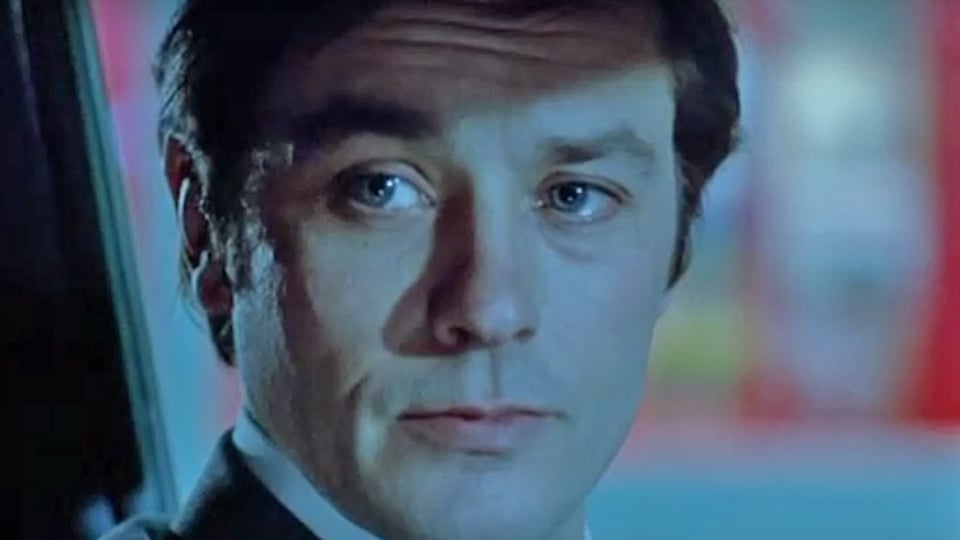

Rather, Simon plays the actor again, spending most of the 20 minutes cleaning himself up in the bathroom and changing into luxurious sleeping robes to give the impression that he’s a passenger unable to sleep. Yet most of Simon’s time isn’t devoted to getting on and off of the train or stealing the suitcase. The second heist, in which Simon is dropped onto a moving train from a helicopter to steal a briefcase of drugs, is an unnerving bit of action that plays out in real time the train slows down for a trek through electric lines, allowing the helicopter to match the train’s speed and giving the criminals only 20 minutes to complete the heist. The act continues as the criminals drive toward the train station to purchase bogus tickets in order to divert the police. Dressed like businessmen, the three men secretly don masks and shades once inside before commencing the robbery, resembling bored actors awaiting their cue in the wings. In the bank, time stands nearly still as the robbers wait for everything to fall into place before the thieves stick up the joint. Time rolls slowly, as it does in every Melville film predicated on the suspense of upcoming short bursts of kinetic maneuvering (a gunshot here, a lock picked there).


Three of the four robbers exit the car, one by one, each walking reluctantly against harsh winds toward the job that could be their last. Rain gushes and winds scream in overcast scenes, emphasizing the cold, grey emptiness of modern architecture surrounding the bank. The first is a bank robbery during which more time is spent waiting for the criminals’ timed action to begin than on the actual job. Indeed, Un Flic’s two set pieces are clearly demarcated from the imposed lethargy present in the rest of the film. Here the French director’s set pieces are so extremely refined that the results seem almost parodic, though it’s fairly obvious that the ritualism with which Melville defines both his characters and his own filmic tendencies is employed with self-reflexive irony. The film cuts serenely between Coleman’s brooding investigation and the gangsters’ elaborate heists, comparing the life of the officer with that of the gangster (sartorially, the men look nearly identical). The film asks more questions than it answers, challenging Parisian modernism, playing provocatively with Melville’s leitmotif of the criminal death wish, and carrying strong homophilic subtext.ĭelon reverses his typecast role and plays the eponymous flic, or cop, Edouard Coleman, in search of four criminals, one of whom is his friend, Simon (Richard Crenna). Closing his Alain Delon-starring trilogy of gangster films, which includes Le Samouraï and Le Cercle Rouge, Un Flic, released one year before Melville’s premature death, certainly doesn’t feel like it should be the final work of a director who was carving out a distinct aesthetic groove late in his career. As far as swan songs go, Jean-Pierre Melville’s Un Flic is a fascinatingly garbled tune that teems with formal inconsistencies and yet still manages to carry a pained melody.


 0 kommentar(er)
0 kommentar(er)
